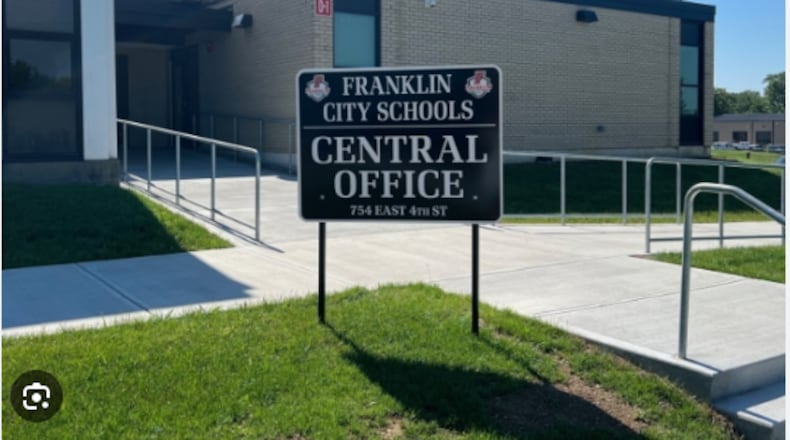The school board’s action Monday night will increase Sander’s annual salary from $165,000 to $172,425 effective Aug. 1, according to the district.
Hawley’s yearly compensation will go from $140,451 to $146,771 on the same date, district records show.
Both contracts include similar language regarding future compensation hikes, according to the documents.
“The board may increase the salary … during the term of this contract,” but it would not be reduced “except as provided by law.”
Raises of 2% annually would take effect on the anniversary dates per cost-of-living adjustments and the salaries of each increase at that time “in an amount equal to the base increase” received by the Franklin teachers union, according to the contracts.
Sander was hired 11 years ago and previously led the Clinton-Massie School District. At that time, he was given a three-year contract with an annual salary of $107,600, Dayton Daily News records state.
Hawley was hired in June 2021 after holding the same position for nearly years in the Loveland school district in northern Cincinnati. He also served as treasurer/CFO for the North College Hill schools.
Hawley was initially given a three-year contract with a salary of $135,000, according to DDN records.
On the most recent state report card, which is largely based on state test scores, Franklin City Schools received a four-star rating, meaning they exceeded state standards.
In recent years, Franklin voters have approved millions of dollars in bond levy funding to build new schools, a multiyear project that is well underway. On the flip side, voters rejected a March 2024 tax levy to pay for day-to-day operating costs, leaving the school district’s financial status in a difficult position, with barely over 5% of a year’s spending in the bank — the lowest of any school district in the region.
About the Author

